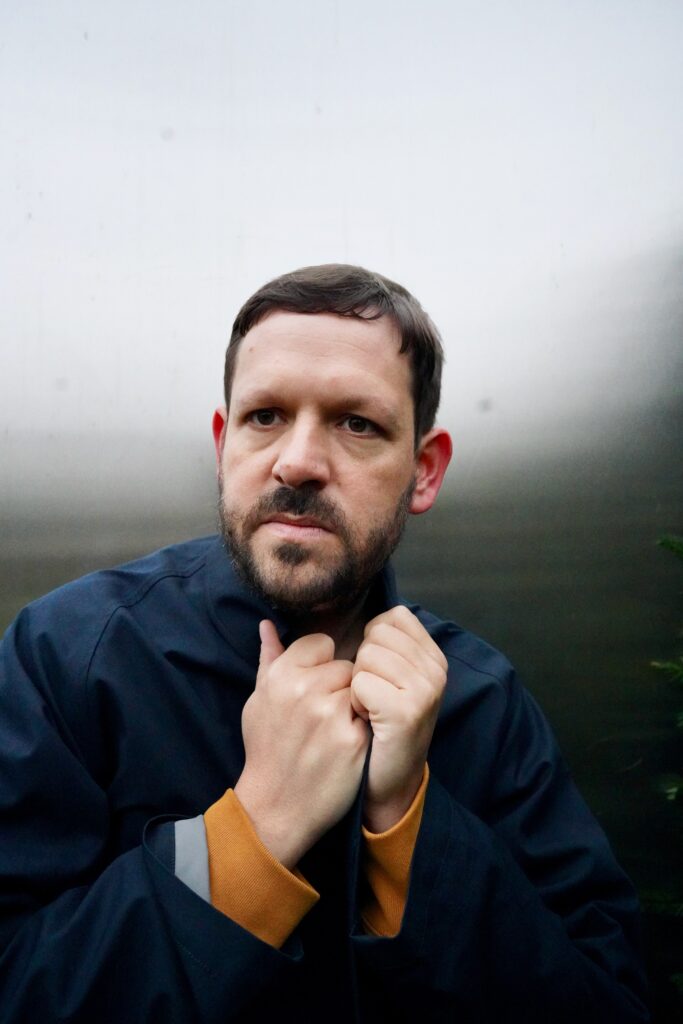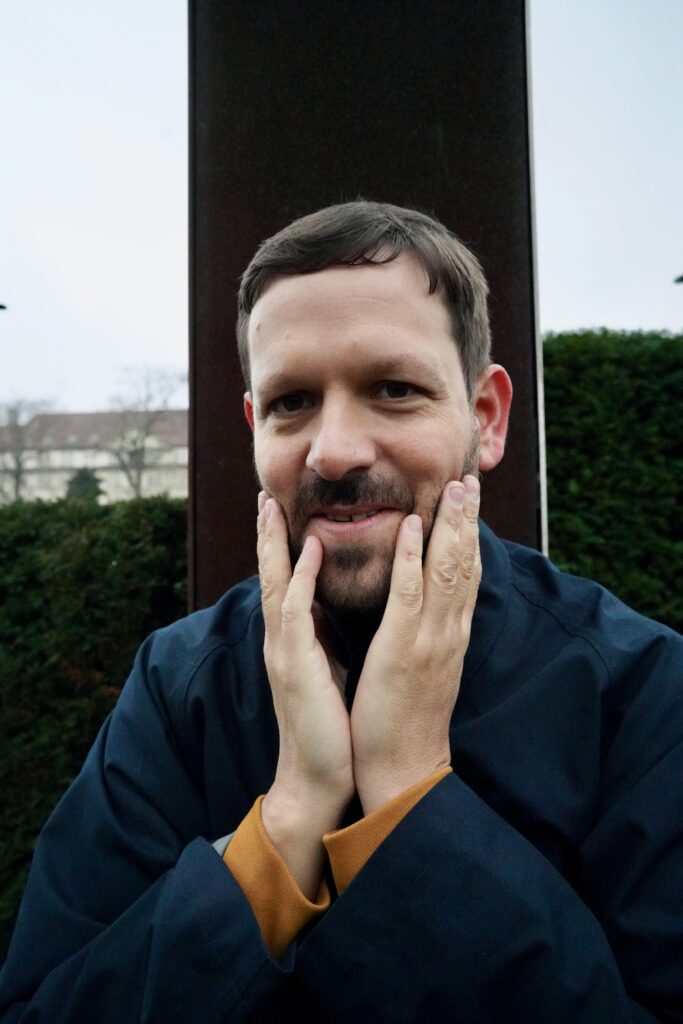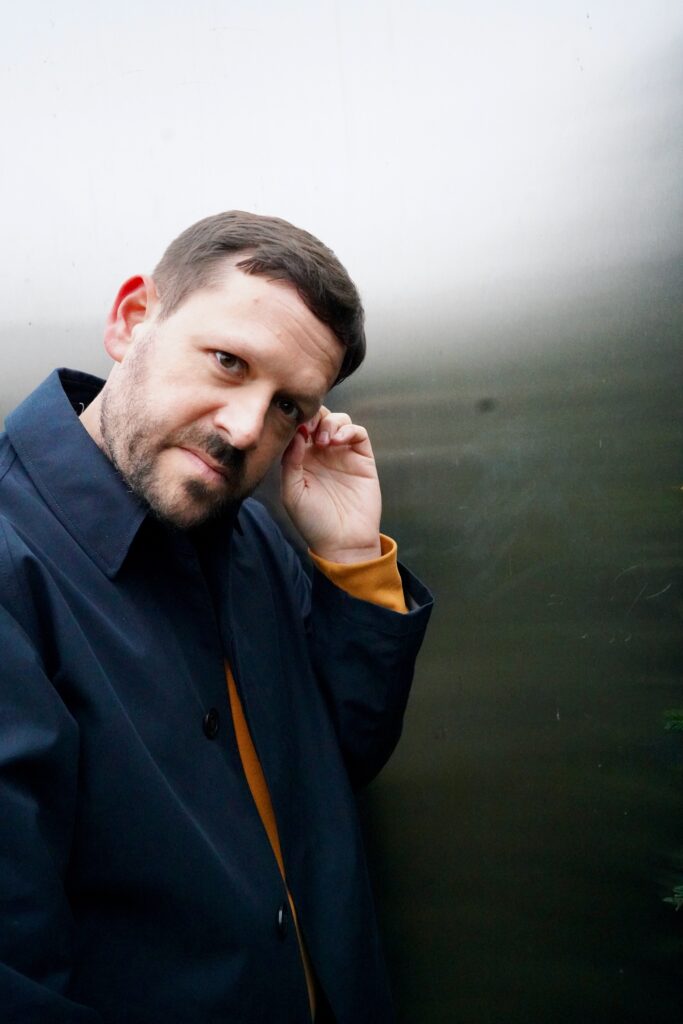Since the late 90s, Phillip Sollmann has been releasing music under the name Efdemin. A regular on the Hamburg-based label Dial, he did much towards the end of the 2000s to hone and popularize a sound which has been decried for paving the way for what is called minimal or tech house today. Yet, Efdemin’s releases from this period—the LPs Efdemin [2007] and Chicago [2010] on Dial as well as a mix-CD called Carry On – Pretend We Are Not In The Room [2008] he compiled for Curle Recordings—are much more than that, and what is more: they’ve aged well.
But where does Sollman end and Efdemin begin? The answer was not always clear to Sollmann himself. Most recently, he has, under his given name, collaborated with the film-score composer John Gürtler on the album Gegen Die Zeit and released the EP Panama/Suez with multi-instrumentalists Oren Ambarchi and Konrad Sprenger. With these and other projects, Sollmann is positioning himself in a scene that still uses clubs as performance spaces, but pursues a style that goes beyond the aesthetic confines of the dance floor.
Following the release of New Atlantis, the new Efdemin album on Ostgut Ton, Kevin Goonewardena met with Sollmann in Hamburg. A few weeks before, Lendita Kashtanjeva photographed the musician in an exclusive shoot for zweikommasieben.
Phillipp Sollmann sits in a back corner of a cafe in the Schanzenviertel—a precinct of Hamburg—a bowl of minestrone before him. “Last night I danced for an hour for the first time in ages! It felt exactly the way it did in 1997 when I saw Richie Hawtin at Rote Flora just around the corner from here. He performed in complete darkness, put on records and played his 909. The minimalism blew me away, just phenomenal.”
Nostalgia
Efdemin’s latest release did not come out on Dial, but the Berghain label Ostgut Ton. New Atlantis is the occasion for the interview, but not its main topic; a conscious attempt to keep attention focussed on Phillip Sollman and not (just) on Efdemin. The meeting place was chosen by Sollmann, who had frequented the cafe during his Hamburg years, as he writes in an email before the interview. Sollmann moved to the northern German city in the mid-90s and spent eight years there before moving to Vienna and eventually Berlin, where he currently lives. He was barely two years into his stay in Hamburg when he saw Hawtin perform—the most defining moments were still to come. The allure of bands like Kolossale Jugend, Blumfeld, and Die Goldenen Zitronen initially attracted Sollmann to the city, and soon after his initial move he found his place in the scene. At first as a member of different bands and from the late 90s onward increasingly as a producer of electronic music. His haunts at the time were the now closed Heinz Karmers Tanzcafé and the Golden Pudel Club [see zweikommasieben #10], which still opens its doors in the same location, but which was an altogether different place at the time. The tendency to book a wild mix of different acts, however, has not changed and is the reason why the Golden Pudel still remains one of Hamburg’s most beloved clubs. On its stage, Sollmann saw Jochen Distelmeyer, the head of Blumfeld, interrupt his DJ-sets with spoken word segments, listened to DJ Koze (aka Fischmob aka Adolf Noise) perform in a time when his remixes gained popularity, and attended the regular art exhibitions on Monday evenings.
The cafe in which the meeting takes place is located on the same street as Rote Flora, the occupied, autonomous space which soon will celebrate its thirty-year anniversary. Sollmann talks about a gig he played in an old submarine-wharf in Tallinn, Estonia, the previous day. Following his set, he danced for the first time in quite a while, and he describes how the energy felt indistinguishable from Hamburg in the late 90s. Richie Hawtin might not have been there, but that didn’t matter. Sollmann clearly has re-discovered the joy of DJing, which primarily has to do with the fact that he allows more of himself to flow into the Efdemin project. Sollmann, who has a proclivity for interdisciplinary work and thinking, continually chips away at the boundaries between the two names, their styles, and the definitions of their music. That had not always been the case.
Sollmann is Efdemin is not Efdemin is not Sollmann
“I used to keep everything separate,” says Sollmann. “The LP Something Is Missing [Dial, 2006] was released under my real name. That was intentional. I had already published music as Efdemin, but this album had a different sound. On New Atlantis, Sollmann and Efdemin come together. I also feel more confident playing things in clubs that I had always wanted to play. I’m letting more of Sollmann into Efdemin. I hadn’t managed to do that for a long time. To the contrary, I’ve avoided any friction between the two.” Efdemin doubtlessly profits from Sollmann’s expertise as an artist working outside of the still rather narrowly defined role of DJ/producer of electronic music, and recently he has been more active in his other roles than ever before. “A lot is happening at the moment. My collaboration with Konrad Sprenger keeps getting more involved. Our organ-project Modular Organ System has gotten a lot of attention already, and we’ll perform with it again soon.”
Sprenger, whose album Stack Music came out on Pan in 2017, and Sollmann have been friends for years and Modular Organ System is by far not their first joint project. Aside from Autotune, the two have also worked with the Australian multi-instrumentalist and composer Oren Ambarchi. The fruit of this labor, the EP Panama/Suez, was released on the revived Ostgut sublabel A-Ton last year. Sollmann describes how the collaboration came about: “I came on board late, actually. Oren and Konrad had two tracks in the works already that had come out of a jam session, but then they hit a wall. Konrad played me the tracks and asked me what I would do with them. For a year, I kept working on them and changed the original material quite drastically. The people at Ostgut Ton liked them so much they offered to release them.”
While the collaboration was still only happening over the internet, without the three musicians ever meeting in a studio or a rehearsal space, they all agreed that performing the project live was pivotal to its success. “There was one concert at Säule in Berghain. We didn’t play our tracks, but jammed together. I had brought my hurdy-gurdy and modular systems, Konrad and Oren their guitars. Jam sessions were something I had always been missing in the club-context: the need to improvise and for something unexpected to happen.” Ben Klock was playing upstairs. “I thought that was great, what you could do in the club: we were playing psychedelic drone downstairs and Ben put on techno upstairs. I’m hoping that things like that will happen more often.”
Breaking free from normality
He used to dread not belonging to the group, Sollmann says. Today, he’s happy not to; not to belong to those jet-setting around the globe, playing big festivals, getting paid big money; not to belong to the big names who spend the night playing everywhere from Johannesburg to Reykjavik, from Buenos Aires to Seoul, Atlanta to Sydney—or rather, who play for two to three hours on each of these nights and do this 100, 150, or 200 times a year, usually employing the same formula. “I was bored by the continuing standardization of the club scene. If you play along, you can make a lot of money, but money isn’t everything.” Sollmann’s self-confidence in this regard owes much to his personal development in the past years. “For too long, I was impressed by the things happening around me. Fortunately, I have learned how to stay true to myself the last years. Maybe it’s because of my age, maybe because I’ve become a dad. I would keep asking myself what was important for me, what I wanted to be, and I’ve stopped letting myself be manipulated from the outside.” He describes the short-lived hysteria that followed his eponymously titled debut as Efdemin, which came out on Dial in 2007: “I still see it with colleagues today, how it all breaks over their heads and washes over them, and suddenly everything changes. All of a sudden, life isn’t what it used to be, and some friendships end.” He is not yet where he wants to be, Sollmann adds, “but I’ve come very far in the last few years in regard to deciding how often and where and what I play. New Atlantis is a reflection of this change in some way. It’s an album about a beginning that hints at the direction in which I could be going.”
Sollmann has never been more diverse in his choice of styles and expressions. As Efdemin, he is working on a few remixes and a techno EP. “Then there’s the organ-project with Konrad, and I’m also writing a piece which will be performed on the Volksbühne in Berlin and premieres in October. It’s a wonderful project. I’ve always thought that, as an artist, you can occupy different genres that intersect with each other in interesting ways, without using some weird cross-over aesthetic. I don’t get neo-classical music and stuff like that, but I think there are a lot of parallels between interesting techno and the music of Laurie Spiegel and Tony Conrad in regard to psychedelic experiences, ecstasy, and transcendence. They’re two sides of the same coin for me.”
No boundaries
Sollmann also explores this intersection in Gegen Die Zeit, his collaboration with John Gürtler that appeared on Dial’s sub-label Sky Walking in 2017. Gürtler, who primarily works as a film-score composer, had remixed Efdemin’s “Parallaxis” [Dial] in 2014. For the past seven years, the two musicians have been working in adjacent studios, which is how they got to know each other. “Since then we have recorded a lot of music together. We have a lot of shared interests: certain conceptions of sound, jazz, and the work of theater director and composer Heiner Goebbels.” When he was invited to the Architektursommer [a tri-yearly festival celebrating achievements in architecture in a selected German city] in Frankfurt in 2015, he chose to work with Gürtler: “We played a concert under a highway-overpass. The record on Sky Walking essentially is an edit of this gig.”
Sollmann has also played cello and guitar in other collaborations. Distelmeyer even once asked him to join Blumfeld as a keyboard player. A few years too late, as Sollmann has mentioned in a previous interview. He continues to seek out opportunities to play various instruments in combination with different artists, and still cherishes the chance to play in settings in which the unexpected can occur. This last desire has always found expression in his side-project, but now has crept into his work as Efdemin. Sollmann soberly shows us something about music that many cannot express without unnecessary pathos: that music is there to break down boundaries.
Phillip Sollmann’s album Monophonie is out on May 15, 2020 on A-Ton; you can buy a copy here.
The portrait above was originally published in zweikommasieben #19; the print magazine is available via Präsens Editionen.


